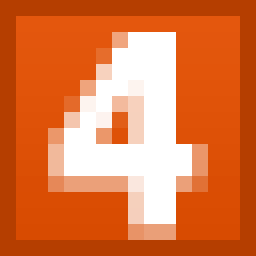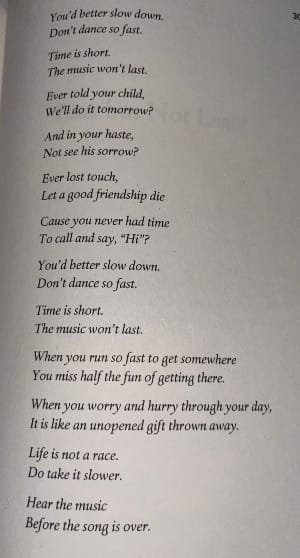Book Club | The 4-Hour Work Week

What did I like about that book?
The idea of outsourcing part of your private life to an online service is appealing. This could save you a lot of time - for instance, by using a virtual assistant to plan your meals, do your online shopping, schedule your vacations or conduct online research for your next evening dress.
What did I dislike about that book?
As with many books of this sort, there's a lot of unnecessary “fat”. You need to get through pages and pages of text before reaching the main point.
Summarize the book
- First, lose the unnecessary - get to the point, remove waste and distractions, outsource wherever possible, go on an information diet and do not concern yourself with things you cannot change. Second, invest the time you've saved into money-generating pursuits and automate the hell out of it. Create freedom of time. Third, put the extra time to good use - travel, learn new skills, work on your dreams, and more.
- Whilst the book provides a lot of useful and specific steps on how to achieve financial freedom, it largely paints the concept of “freedom” as the ability to do what one desires when they desires it, rather than “having loads of money in the bank”.
- Everything in this book revolves around travelling and learning. Tim is a big fan of it so it does make sense. The concept he paints, is that life is meant to be enjoyed and not spent at the office.
Favorite Quotes
Never delegate something that can be eliminated. Never delegate something that can be automated.
I believe that life exists to be enjoyed and that the most important thing is to feel good about yourself.
Mistake is not performing a thorough 80/20 analysis every two to four weeks for your business and personal life.
Chapter 1 | Step I: D is for Definition
This chapter focuses on finding strength and courage to take risks and pursue your goals. It gives examples and step-by-step guides how to achieve them. It argues for “time freedom” rather than “financial freedom”
- Introduction of a term New Rich (NR). NR are those who own assets, generate passive income, are in control of their working hours, decide what to work on and when, have others work for them etc. These are not the employees and not necessarily the business owners. This concept shifts the idea of “rich” away from materialistic goods into experiences.
- Adopt a concept of “mini retirements” that punctuate your life when you are still young.
- Don’t put things away till tomorrow; “someday” and “eventually” are never going to happen.
- Be brave and take risks; ask for forgiveness not permission.
- Work on your strengths (these multiply your results), not weaknesses (these increase results incrementally).
- Have a good stress in your life - learning, thinking, exercising.
- Face your fear - write down exactly what you are afraid off, be as detailed as possible. Then work through each point creating scenarios of what can go wrong. Address each and conquer your fear.
- Be brave - if you want something, go and get it. Reach out to people you are impressed by and learn from them. Do not be afraid to contact celebrities, board members or athletes you admire.
- Increase your “sphere of comfort” to get what you want.
- Set up your goals. Use "dreamlining":
- Create 6- and 12-months timelines.
- List five things you dream of having, being, and doing. Be honest with yourself. It’s ok to be greedy and to be materialistic.
- If you are having trouble coming up with ideas try the following ideas. What is the one place to visit, one thing to do before you die (a memory of a lifetime), one thing to do daily / weekly, one thing you always wanted to learn.
- then convert each "being" into doing, for example fluent in Chinese → have a five-minute conversation with a Chinese co-worker.
- Select four most desired dreams and put a star next to them.
- Determine the cost of these dreams and split the cost into monthly, weekly or daily costs, which you then work towards.
- You need to be in controls of the following “w” to achieve the status of NW. These are the four freedom multipliers.
- what you do
- when you do it
- where you do it
- with whom you do it
Chapter 2 | Step II: E is for Elimination
- Pareto Law and Parkinson Law
- Pareto Law - 80/20 principle that say 80% of the results come from 20% of the efforts
- Parkinson Law dictates that a task will swell in (perceived) importance and complexity in relation to the time allowed for it.
- Identify the few very critical tasks that contribute most to income and schedule them with very short and clear deadlines.
Define to do list and not to do list. Use both.
- what 20% of my sources are causing 80% of my problems and unhappiness.
- What 20% of my sources are responsible for 80% of my income and happiness.
- Define activities you do that fill time and postpone necessary actions.
- Identify people you hang out with that are bringing you down and cause anger, depression and unhappiness.
- Don’t ever arrive at the office or in front of the computer without a clear list of priorities.
- Compile your to do list (ideally hand-written and clearly visible) no later than this evening. There should only be two mission critical items on your list.
Set the rules, focus and reduce distractions
- Limit access to your time and remove distractions, e.g. turn off e-mail and teams notifications. Never check e-mails first thing in the morning. Delay till 10am or 11am. Use headphones.
- Batch routine menial tasks to prevent postponement of more important projects. For example, batch e-mail processing to two daily sessions.
- Force people to define their requests before spending time with them, e.g. meeting agenda, share material to review prior to a meeting.
Do not let people interrupt you. Find your focus and you’ll find your lifestyle.
Create systems to limit your availability via e-mail and phone to deflect inappropriate contacts
- Use email instead of a face-to-face meeting to solve problems. Use phone calls to go over things if faster than via back-and-forth emails.
- Get out of meetings if these are not useful.
- If meetings are unavoidable, go in with a clear set of objectives or set an end time or leave early.
Batch activities to limit setup costs and provide more time for Dreamliner milestones
- Allocate specific time each day, week, month quarter or a year
- Batching tasks together avoids extra cost of frequently switching of tasks and helps pull everything together for faster processing.
Set or request autonomous rules and guidelines with occasional review or results
- Remove myself from the decision-making process (since I am often the bottleneck),
- Design “rules” to help employees make decisions.
Chapter 3 | Step III: A is for Automation
- Outsource part of your responsibilities - e.g. online outsourcing service, au pair, your mum - go for it. Remember that delegation needs to be specific, well defined with clear expectations. Otherwise the other person will apply their judgement and the result of that may be different to what you’d expect.
- Find your niche and start selling there - the deeper it is the better; find ways to automate production (e.g. drop shipping).
- Sell products / services online | Tim mentioned drop shipping, but he speaks generally about online sales with maximum automation and outsourcing.
- Step 1 - find your interest - which social, industry, and professional groups do you belong to, have belonged to, or do you understand, whether dentists, engineers, rock climbers, recreational cyclists, car restoration aficionados, dancers, or other? look creatively at your resume, work experience, physical habits and hobbies and compile a list of all the groups, past and present you associate yourself with. Look at products and books you own, include online and offline subscriptions, and ask yourself - “what group of people purchase the same - magazines, websites, newsletter you read regularly?
- Step 2 - pick two markets you are most familiar with- find products in these markets, come up with well-formed products ideas but spend nothing; you will create advertising later, capture the main benefits in a simple term - something that will be catchy and attract potential customers, price at around 50-200 EUR per piece.
Chapter 4 | Step IV: L is for Liberation
- Keep your job if you like it but embrace the mobile lifestyle. Figure out a way to run your business remotely, automate as much as you can and set up systems in place so to delegate decision making. If employed, arrange a remote working agreement.
- Adopt the concept of mini-retirements that are spread out throughout your lifetime. Do not wait till you are old and unfit to travel.
- If you can’t define it, or act upon it, forget it. Don’t spend time on things that are beyond your hemisphere of influence. To all the big or otherwise question's, ask:
- have I decided on a single meaning for each term in the question?
- can an answer to this question be acted upon to improve things?
Chapter 5 | The Last Chapter: An E-mail You Need to Read
This chapter includes a poem by Written by David L. Weatherford titled Slow Dance


Chapter 6 | Last but not Least
- Reduce overwhelm by simplifying decision making and reducing options
- Don’t postpone decisions just to avoid uncomfortable conversations/ moments, make trivial and reversible decisions quickly, e.g. taxi or train,
- Keep routine where necessary and increase variation where valuable (exercise routinely, vacation variety),
- Don’t complaint don’t regret - improve and learn
Living the 4-Hour Workweek
A collection of case studies from people who implement some or all rules from the book to improve their lifestyle.
Until next time !
M | K


Member discussion